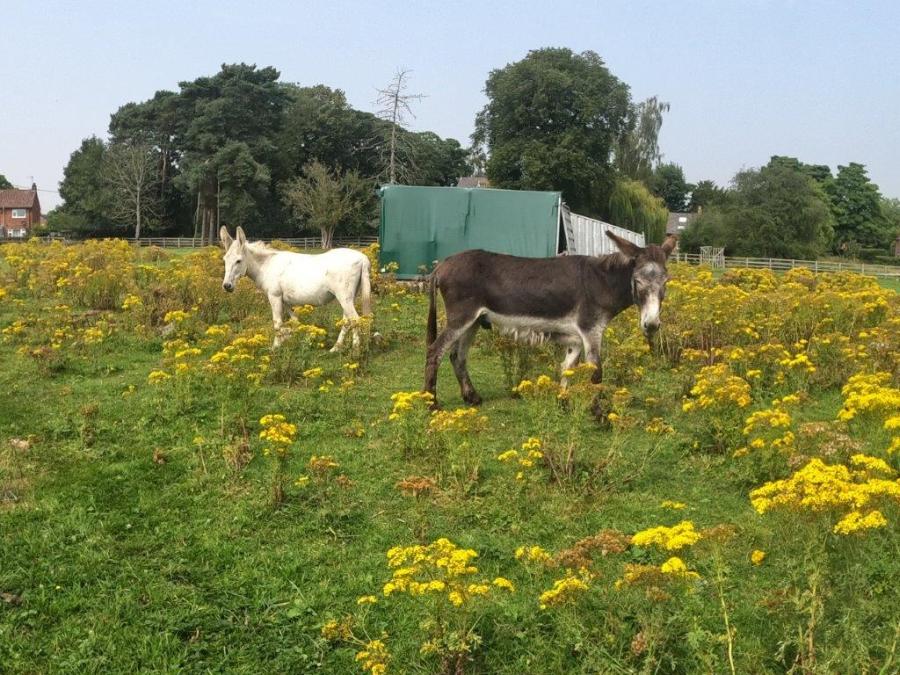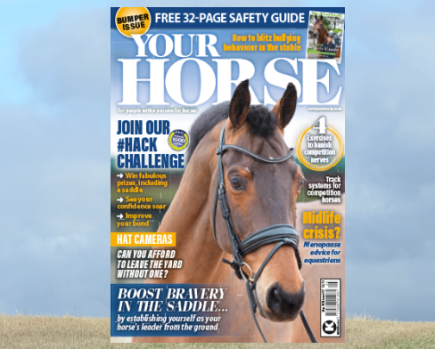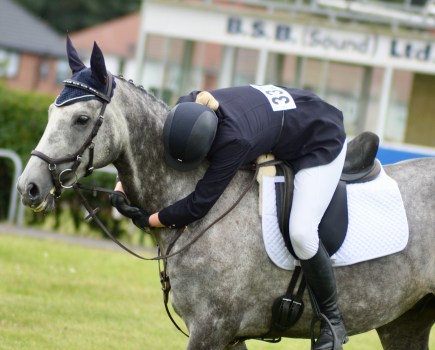Four donkeys found in a poor condition in a field of ragwort, with piping, nails and plastic littering their grazing, have been taken in by The Donkey Sanctuary. Parsley, Sage, Saffron and Sorrel were kept in a paddock near York that was scattered with electric fencing tape and rubbish.
When the charity’s Head of Welfare Hannah Bryer arrived at the donkeys’ site in July last year, she discovered the equines in the unsuitable setting.
“Fencing tape can cause serious injury, so it must be carefully set up and safely maintained,” she said. “Any excess or unused fencing tape should be stored appropriately to prevent animals from accessing it and becoming entangled.
“There were other objects in the donkeys’ field which could have posed a risk to the animals, including rusty metal, plastic piping and fallen fence posts and exposed nails.”
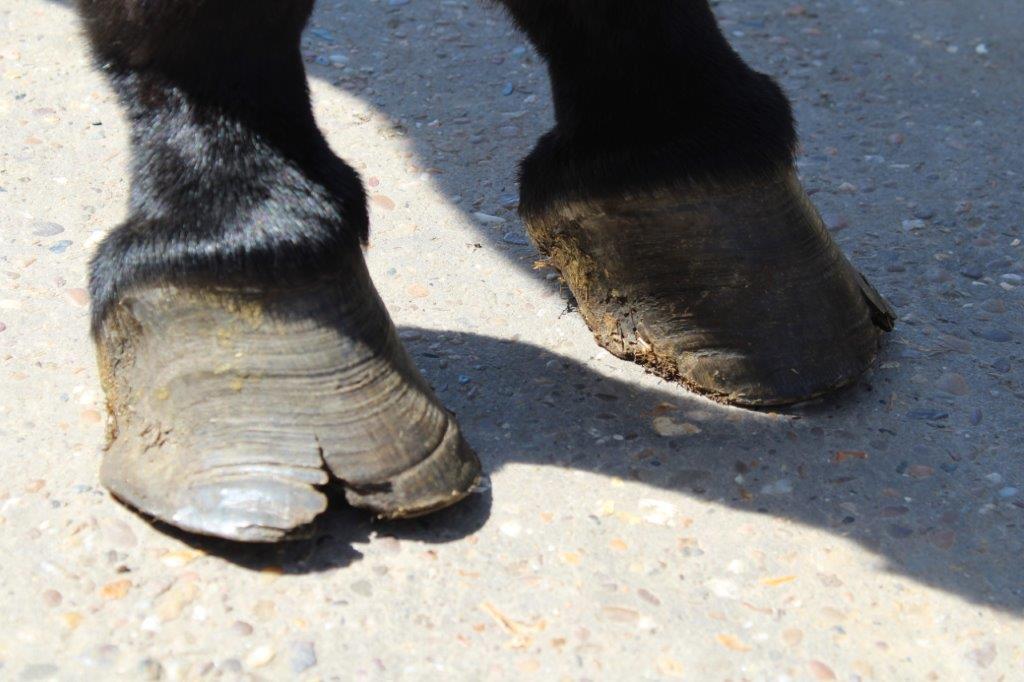
Their hooves required urgent attention
Hannah saw Parsley had a poor body condition, and she could see areas of muscle wastage. His coat was matted and infested with lice and his feet were overgrown and in need of farriery care.
Sage also had lice and was overweight. Her hooves were also overgrown, causing lameness and making turning particularly difficult.
Saffron and Sorrel both had scabbed areas of skin across their neck, shoulders and limbs and their hooves were also overgrown.
“Although the RSPCA had previously given the owner advice to improve the conditions, we could not reach them, and therefore we worked with the RSPCA, North Yorkshire Police and a local equine vet to safeguard the donkeys’ welfare,” said Hannah.
“After veterinary examinations, the donkeys were transported to a nearby holding base, where they received all of the necessary veterinary, farrier and dental treatment.”
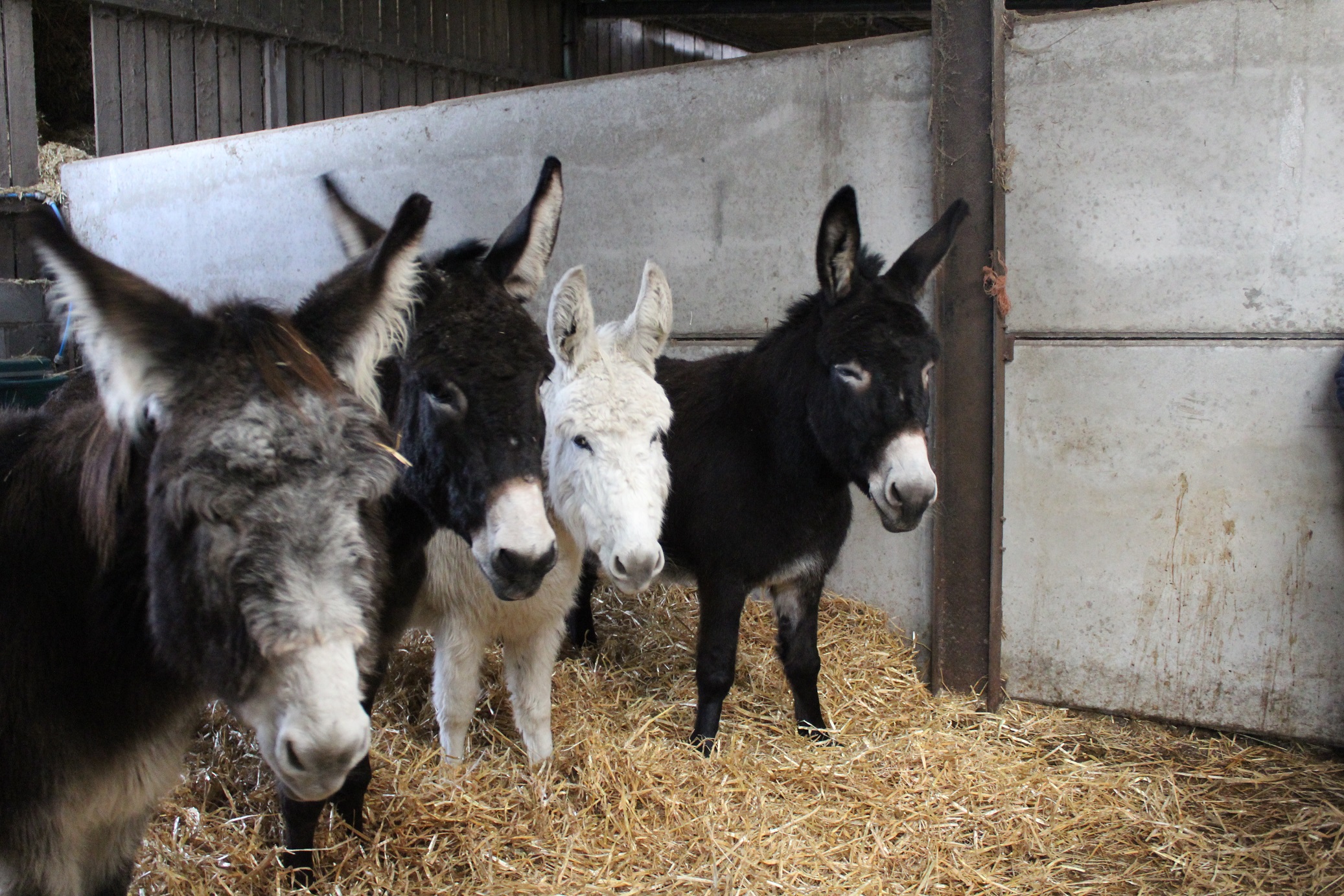
The donkeys following their rescue
After the donkeys were removed, the owner contacted The Donkey Sanctuary and later agreed to relinquish the donkeys into their care.
“‘The Herbs’, as they are affectionately known, are friendly, curious donkeys who had sadly found themselves needing our help,” added Hannah.
“They continue to be monitored from a veterinary point of view and are currently receiving training to support their behaviour and will later be assessed to see if they are suitable for rehoming.
“During their time at our holding base, they have needed lots of support to help them feel more confident when being handled and when the farrier comes to trim their feet.”

